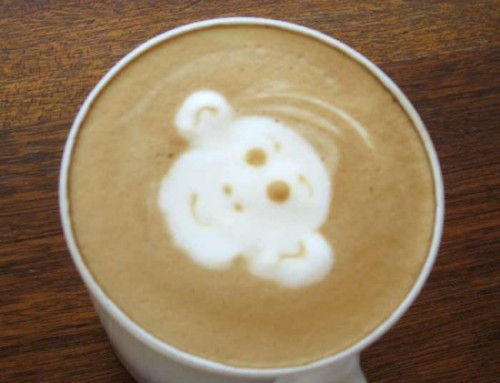Let’s sit down for a cup of coffee. Back in the day of the commodity driven economy, we would have bought or traded for our own basic coffee-creating commodities like water, firewood, coffee beans, milk and sugar to prepare that delicious cup of coffee. Our cost for a commodity based cup of coffee would be pretty low.
Leap forward to the goods based economy. We’re not interested in basic undifferentiated goods. Instead we’re looking for distinctive tangible goods like our favorite fresh coffee beans in a can all ready to dump into our automatic electric coffee maker. Our cost for a cup of coffee just went up.
Flash forward to today and we’ll outsource the whole project. We aren’t at all as interested in the cup of coffee as we are the experience that comes with it. We spend time finding the hottest coffee shop, check our phone for their daily special, wait in line, check-in to the shop on our phone, wait for our beverage, take a picture of our beverage and share it with our peers, pay top dollar for the coffee and then try to find a seat to enjoy it.
Just like with a cup of coffee, hotel guests seek experience. As we’ve just demonstrated, an experience is a distinctive economic offering. That’s good news for hoteliers because you’re in the business of selling and delivering experiences. Sounds easy, but these experiences need to satisfy your guests. Satisfying today’s guest means that you’re really in the transformational business.
Satisfaction is more than a score. Real guest satisfaction is work and, just like any work these days, we’re all looking to work smarter and only sometimes harder. The simple formula (Time + Cost) Experience = Satisfaction will help us all understand the fundamental steps required to produce a truly satisfactory guest experience.
Before we dive into the processes associated with satisfaction, we should better understand what satisfaction is. Satisfaction is commonly defined as the fulfillment of a guest’s expectations and needs. Satisfying the expectations and needs of your guests will help your bottom line, help you keep the guests you have and attract more guests all while building an experience carefully crafted around the voice of the guest.
As we’ll explore, you can deliver two main experience types that lead to satisfaction: a (usually) low cost ‘service experience’ and/or a (usually) high cost ‘transformational experience.’ Of course, there are several experiences that are below and between these two classifications but these are hybrids of the main experiences we’ll explore.
How do you deliver satisfaction the New Experience Economy?
Your guests, and potential guests, are calculating the cost and value of your hotel at each step of their experience with you. Guests today have limited the resources that they’re willing to invest in a vacation experience (time and money) and have amped up their resources to gauge the value of that experience relative to replacement experiences (social media and peer reviews).
In the New Experience Economy, the guest’s voice is louder and more important than yours.
Listening. The voice of your guest will tell you whether their investment in your experience was too great or if the expectations they had weren’t met by the experience you delivered. Be sure to listen what your guests are saying, analyze what they’re saying and act on what they’re saying. After all, expectations can make or break an experience and a business.
Speaking of the voice of your guest, let’s go back to our coffee shop. Here’s what happened with that message that went out to a few thousand community members with our cup ‘o joe photo:
Coffee Purchaser:
“Can’t believe I waited in line… and still paid for this! It’s not even my order!! Poor form Coffee Shop A!!”
Community Member #1:
“Crazy – that happened to me last time! I’m done with Coffee Shop A.”
Community Member #2:
“You should try Coffee Shop B next time – they’re waaayyy better.”
Coffee Shop A Owner:
“Dear Coffee Purchaser and Community Member #1 – c’mon back to us and your next two drinks are on the house! Dear Community Member #2, we’re waaayyy better than Coffee Shop B and we’ll prove it to you. Your first drink’s on us, too.”
Coffee Purchaser:
“Community Member #1 and Community Member #2 – let’s meet at Coffee Shop A tomorrow at 10am!!”
Coffee Shop A Owner:
“We’ll be here – message us your orders so you don’t have to wait in line this time!”
Community Member #1:
“AWESOME!”
Community Member #2:
“SWEET!!”
This exchange sums up satisfaction nicely. Coffee Shop A missed at first, but then promised to satisfy the expectations and needs of its guests. This will help the shop’s bottom line, helped the shop keep the guests it already had and attracted more guests. The shop did this all while building an experience carefully crafted around the voice of the guest. You can do the same in your hotel, just be sure to listen and remember that (Time + Cost) Experience = Satisfaction.
Also published here






